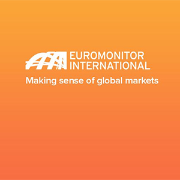News
What does the future hold for CBD in Europe?
2 Jan 2020Foods, drinks and supplements containing CBD oil are taking off in North America, despite uncertainty surrounding its regulatory status, but even in Europe foods containing hemp-derived ingredients are on the rise.
Despite a huge amount of activity around CBD – a non-hallucinogenic extract from the cannabis plant – in North America over the past couple of years, the European Union has become the standard for global market acceptance as the European Food Safety Authority grapples with the best way to establish sensible regulation to ensure access to safe, standardised products.

In January 2019, EFSA amended novel foods regulation so that hemp flowers, leaves and all extracts containing cannabinoids (such as CBD oil) required novel foods approval. Now, only products from hemp seeds and seed oils are permitted in foods without such approval – and their use is widespread, appearing in products like non-dairy milk, breakfast cereals and bars, bread, snacks, pasta and vegetarian burgers. However, the change in regulation threw the burgeoning CBD market into disarray, as companies already operating in the sector suddenly needed to seek EFSA approval to continue using it. For small firms, such approval can be prohibitively expensive, costing upwards of €300,000 for an uncomplicated application, plus the cost of research to demonstrate its safety.
Some suggest it is only a matter of time before regulatory barriers are removed, but until the EU approves CBD for food use across the region, it seems likely that major manufacturers will continue to drag their feet. The biggest names are poised to explore the ingredient’s potential, as companies like Coca-Cola, AB InBev and Heineken-owned Lagunitas Brewing have all announced their interest – or even started laying the groundwork with partnerships and product development.
The European industry is watching closely for EFSA’s pending decision on a novel foods application for CBD from the Czech company Cannabis Pharma, which could open the floodgates for other companies to launch in the European Union. Local hemp growers eagerly await the decision too; Europe is the world’s largest hemp growing region after many EU member states lifted a ban on growing it in the late 1990s.
In the meantime, some in the industry, including the UK-based Cannabis Trades Association, have called for a legal opinion with the backing of member states on whether cannabis extracts are indeed novel – a status it disputes.
While the industry awaits clarification on EU-wide use, the regulatory situation in the United States also could provide a model for broader use in the region. Products containing CBD (as well as psychoactive THC) are technically illegal under federal law in the US, but sales are permitted in states that have more relaxed laws on cannabis in general. A similar situation is possible in the EU as member states can overrule EFSA’s novel foods approval requirement, and Bulgaria has already done so.
When (and if) CBD does gain approval in the EU, market researchers are optimistic about its potential. Euromonitor International, for example, has suggested that global new product launches could double within two years, buoyed by considerable consumer interest in ‘mood foods’ and nootropics.

